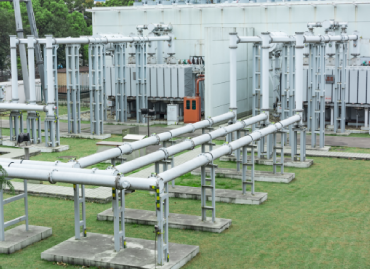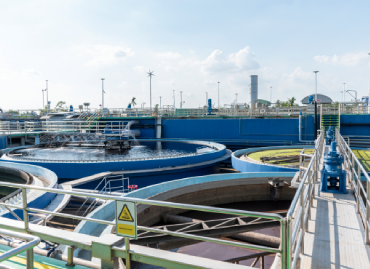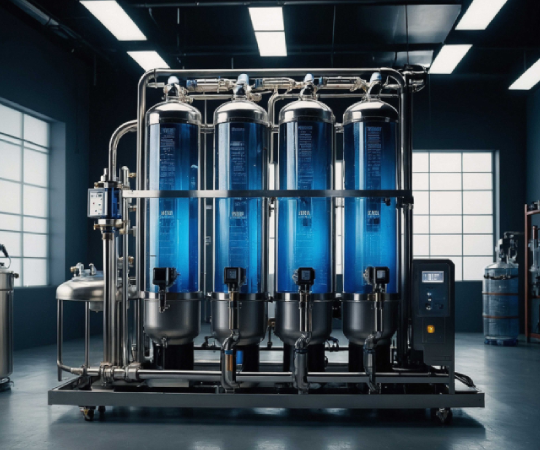- By Admin
- 20 Sep 2025
- ETP Plant
Comprehensive Water and Wastewater Treatment in India's Machine Cleaning Sector
Machine cleaning industries form a crucial backbone of India's manufacturing and maintenance ecosystem. Whether supporting automotive assembly lines, aerospace component servicing, food processing machinery, or heavy engineering plants, these industries rely heavily on water to maintain equipment functionality and performance.
Maharashtra's industrial hubs, such as Pune, Nashik, and Aurangabad, have become centres where specialised cleaning services thrive. The processes involved demand large volumes of water for degreasing, pressure washing, rinsing, and flushing. This water not only acts as a solvent and carrier for detergents but also serves as a cooling medium, especially in ultrasonic or steam-based cleaning systems. The purity of water used is critical, particularly for high-precision machinery, making water treatment indispensable before and after use.
"Water is the unsung hero in machine cleaning industries—essential in every cleaning stage but equally important to recover, recycle, and treat for environmental sustainability. Responsible water management not only preserves a vital resource but also drives efficiency, compliance, and long-term industrial success."
Sources and Composition of Wastewater from Machine Cleaning
The cleaning operations inevitably generate significant volumes of wastewater. Degreasing activities discharge water laden with oils, lubricants, and dissolved contaminants. High-pressure rinsing flushes out dirt, metal particles, and residual detergents, often resulting in wastewater containing suspended solids and chemical residues. Additionally, cleaning of tanks, pipelines, and equipment contributes to the wastewater stream. This wastewater is complex, typically comprising emulsified oils, greases, solvents, metal shavings, and a mix of organic and inorganic pollutants. Moreover, depending on the chemicals used, the pH can vary widely, with some wastewaters exhibiting high acidity or alkalinity. The high chemical oxygen demand (COD) and suspended solids necessitate thorough treatment to prevent environmental pollution.


Treatment Technologies for Effective Wastewater Management
To address the challenging nature of machine cleaning wastewater, industries commonly deploy Effluent Treatment Plants (ETPs). The initial phase often includes oil-water separators designed to remove free-floating oils from the wastewater. Following this, coagulation and flocculation processes encourage suspended solids to settle, clarifying the water. Chemical dosing is applied to balance pH and break down emulsions, facilitating the separation of contaminants. Aeration tanks may be introduced to biologically degrade organic matter, while sand or activated carbon filters polish the water further by removing remaining impurities. The treated effluent can then either be safely discharged in accordance with environmental regulations or reused for non-critical applications within the facility, thereby reducing freshwater consumption.
Embracing Advanced Water Treatment Innovations
With the increasing emphasis on sustainability, many machine cleaning industries have adopted advanced treatment technologies such as Ultrafiltration (UF) and Reverse Osmosis (RO). These membrane filtration systems are highly effective in reclaiming clean water from complex waste streams, often enabling near-complete water recovery. Integration with Zero Liquid Discharge (ZLD) systems ensures minimal liquid waste, maximising water reuse within the plant. Additionally, automated real-time monitoring technologies allow continuous assessment of water quality parameters, ensuring consistent compliance and operational efficiency. These innovations not only reduce operational costs by lowering water consumption and wastewater discharge fees but also contribute significantly to corporate social responsibility and regulatory adherence.
Tailored Solutions for Sustainable Machine Cleaning
Recognising the unique requirements of machine cleaning facilities, specialised water treatment solutions have become essential. Our comprehensive service offerings include the design, supply, installation, and maintenance of ETPs, RO units, oil-water separators, and ZLD systems tailored to each client's wastewater profile. By conducting detailed on-site analyses, we ensure that the treatment solutions are optimised for efficiency, cost-effectiveness, and environmental compliance. Our advanced control systems and IoT-enabled automation further support real-time monitoring and management, allowing industries to maintain peak performance while adhering to sustainability goals. This holistic approach equips machine cleaning units to manage their water footprint responsibly and effectively in today's competitive landscape.
Summary And Conclusion
ial hubs, demands sophisticated water and wastewater management strategies due to the complex nature of contaminants involved. Employing Effluent Treatment Plants combined with advanced filtration methods like Ultrafiltration and Reverse Osmosis allows these industries to treat, recycle, and reuse water efficiently. By integrating automation and real-time monitoring, companies enhance compliance and operational control, reducing environmental impact while cutting costs. Tailored solutions addressing the specific wastewater characteristics of machine cleaning processes empower facilities to balance industrial productivity with sustainability. Ultimately, responsible water management is a vital pillar for the future growth and environmental stewardship of this sector.































































